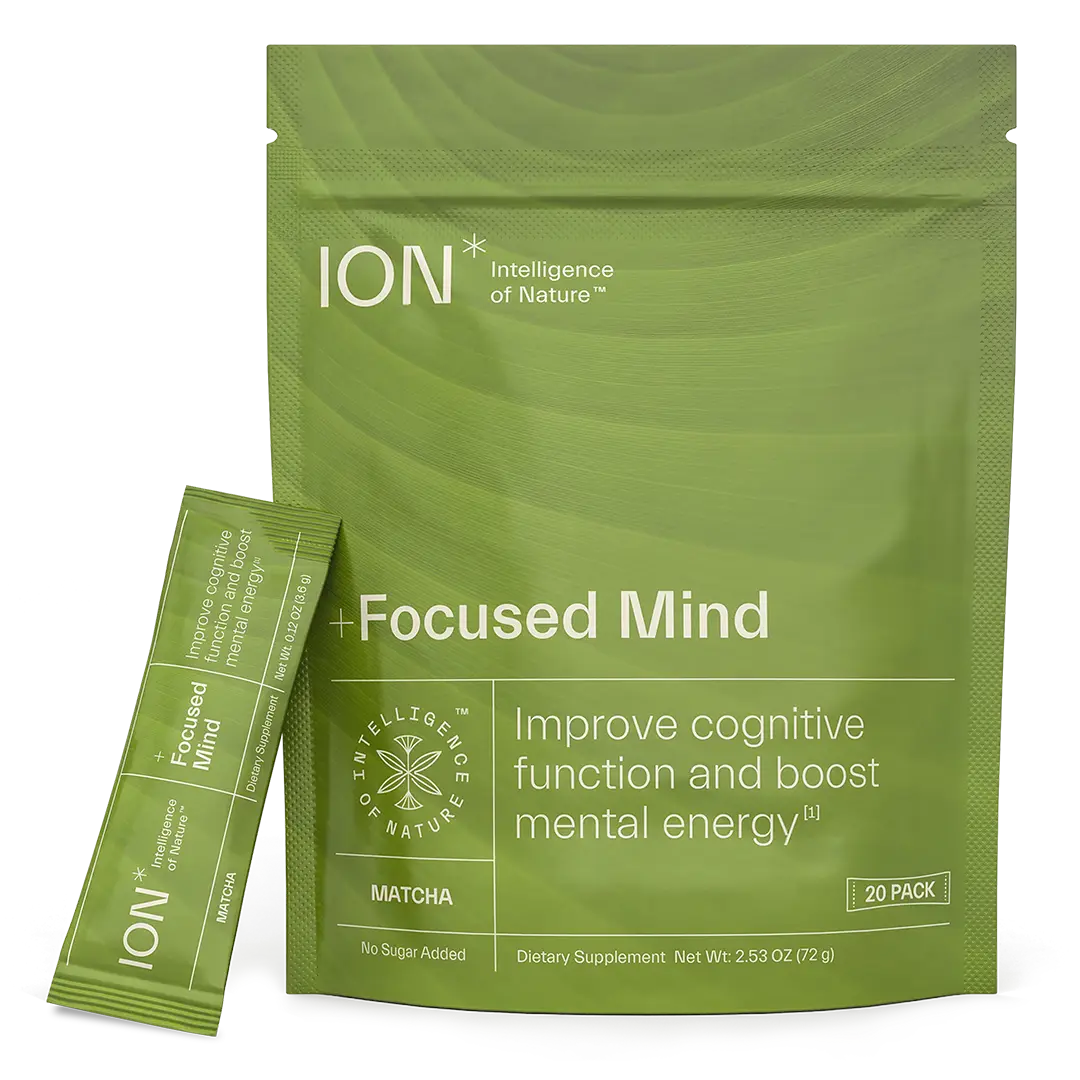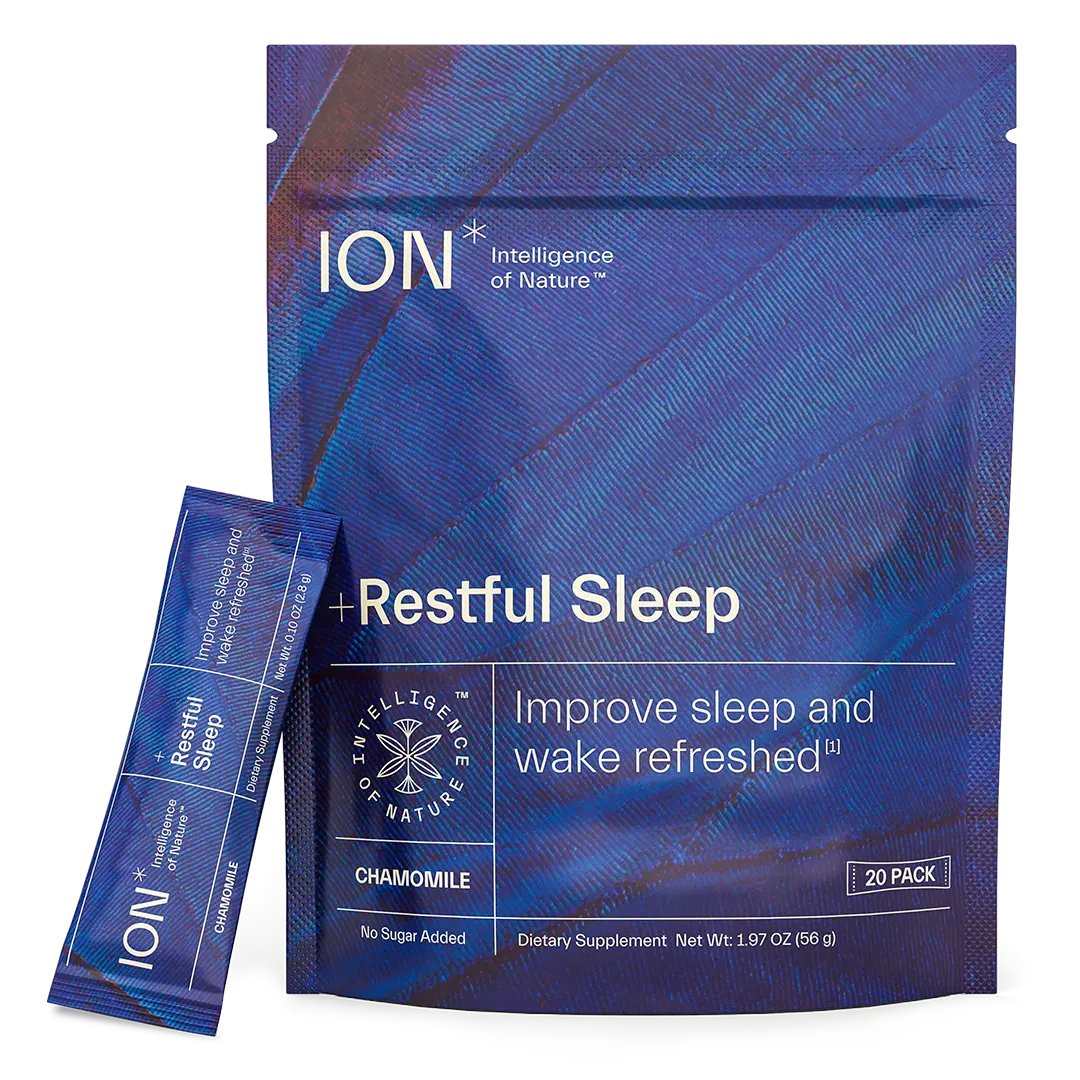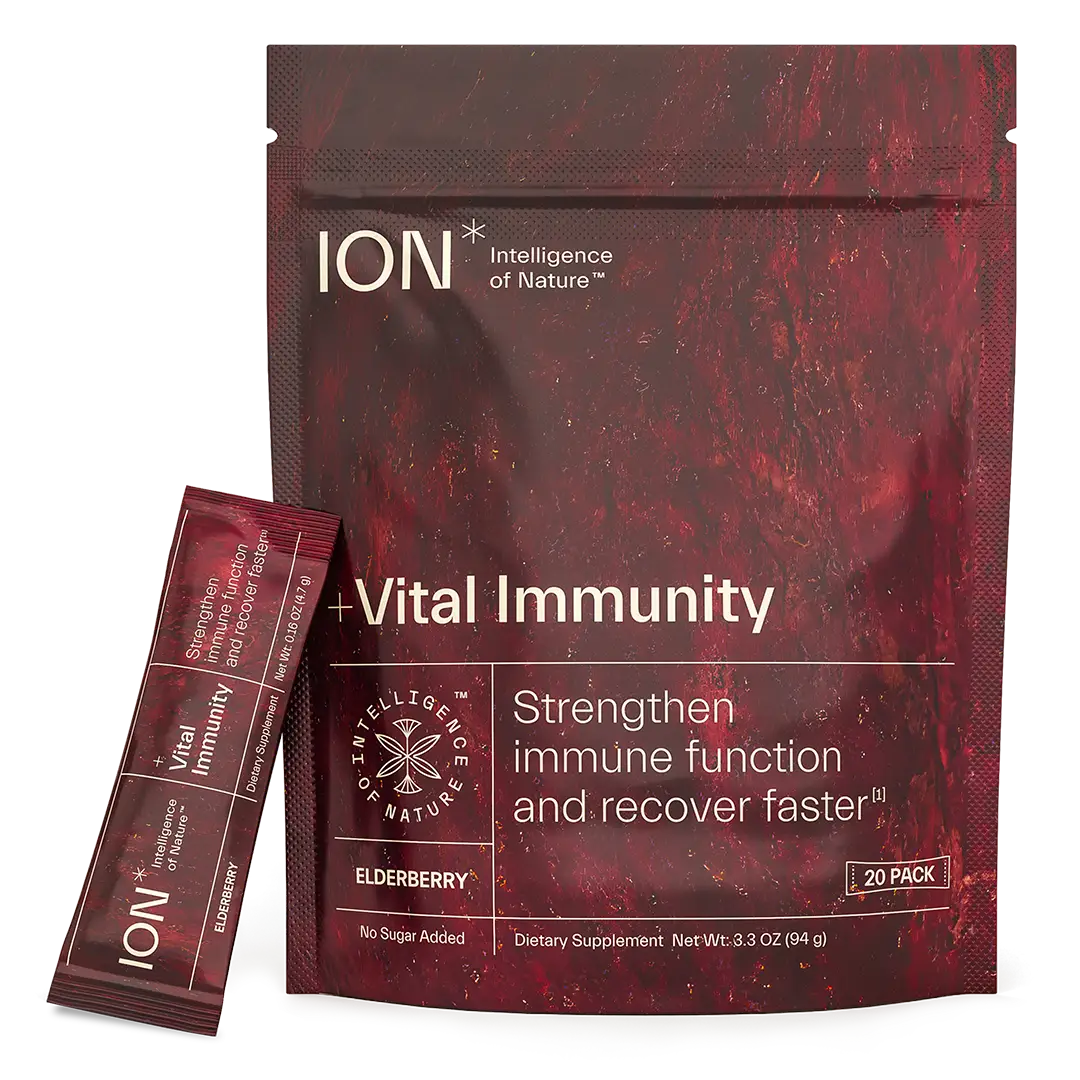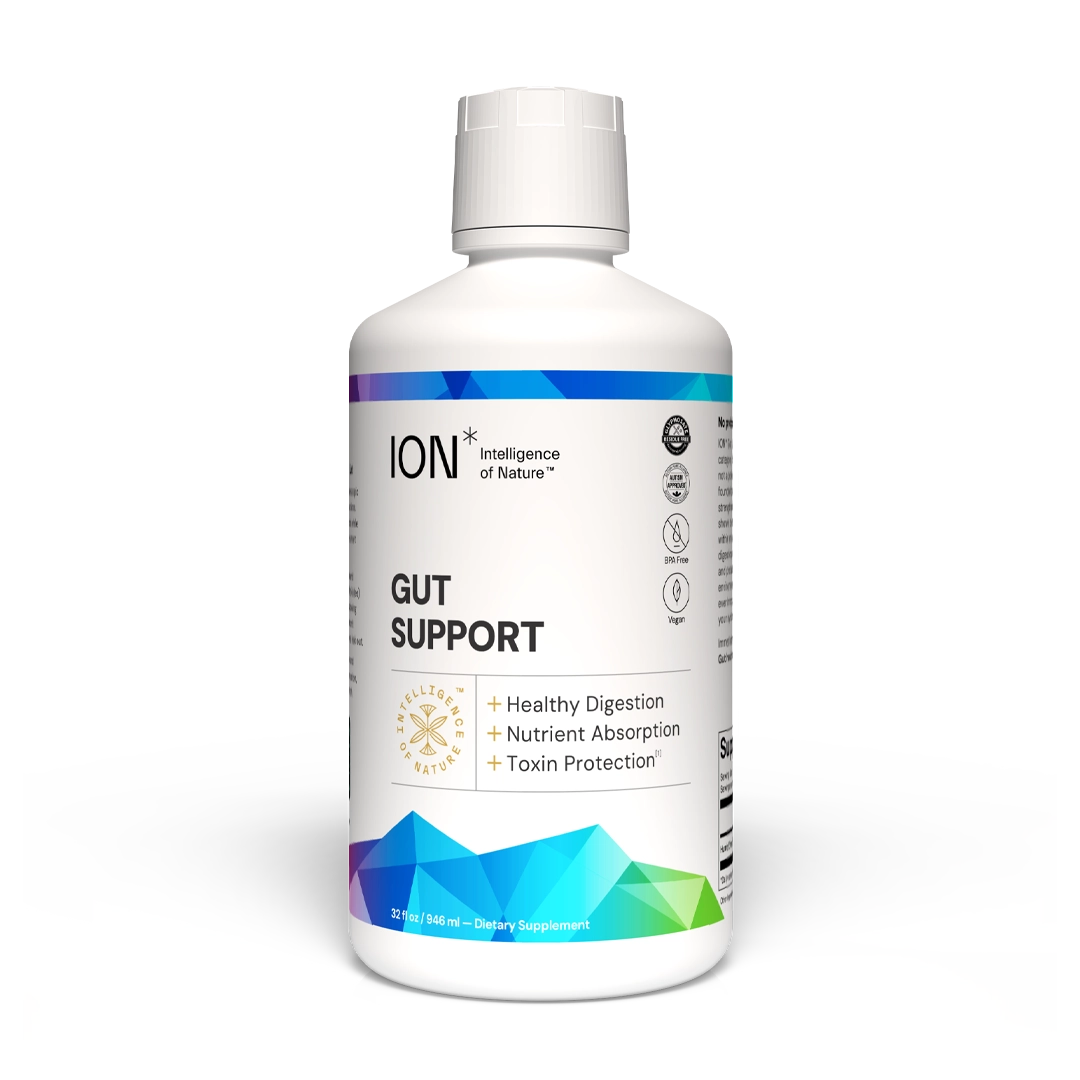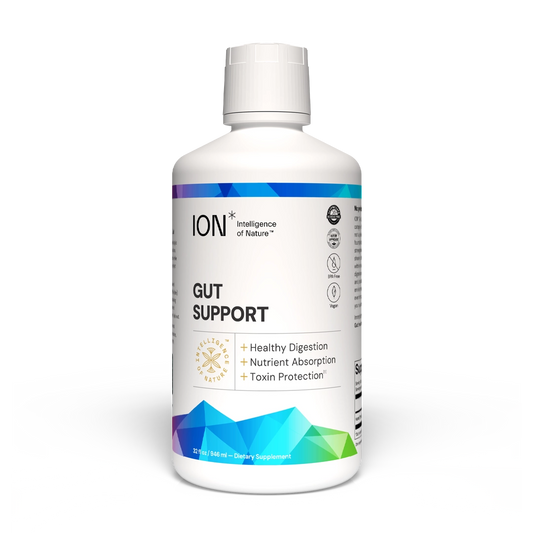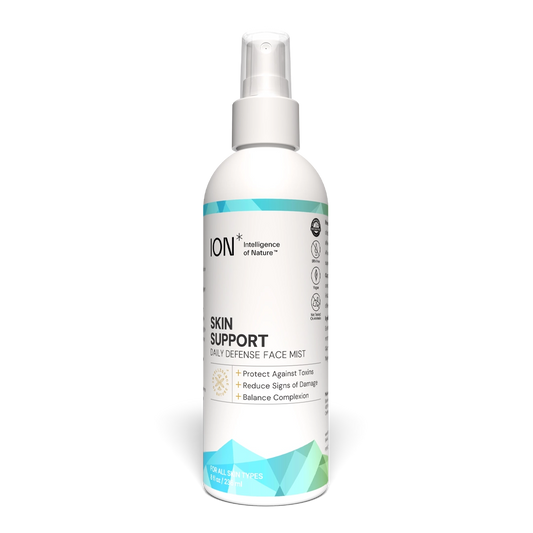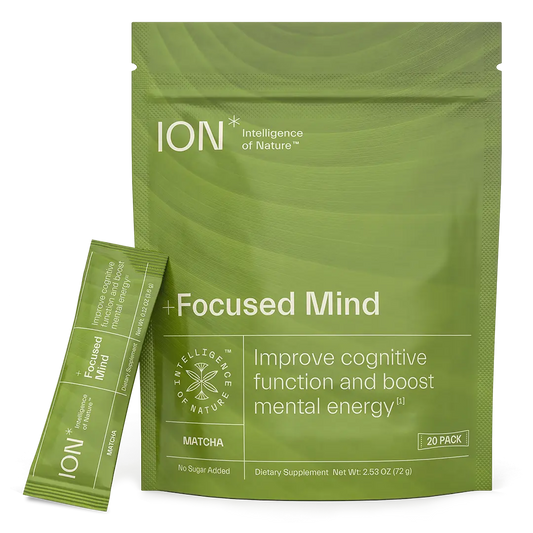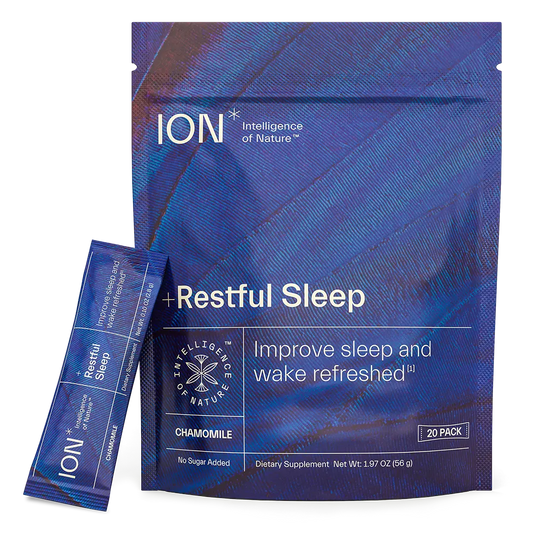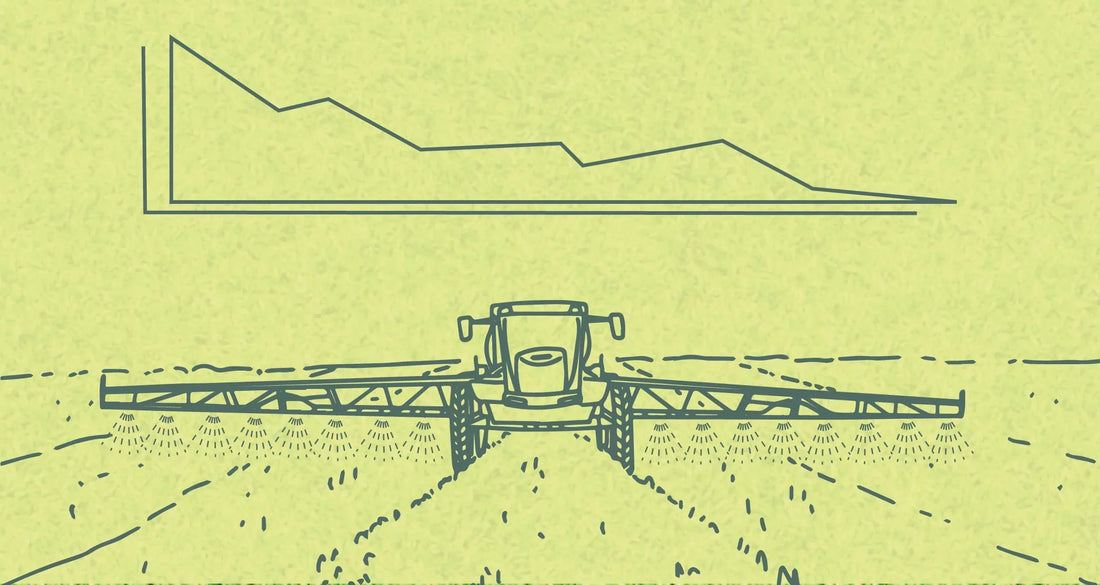
It's another Sunday at the grocery store. As I stand behind a man who insists upon giving a solid squeeze to every single avocado in the pile, I try my best to muster serene acceptance, as I have been encouraged to do in my earnest (but questionably successful) attempts at mindful meditation. On the other side of the avocado section, a cheery mom sings the first verse of Puff the Magic Dragon to her cart-riding wild child, repeatedly. On the cracker aisle, I routinely scour for new gluten-free options.

A gluten-free diet (no wheat, barley, or rye) lifted me out of a state of chronic illness several years ago. While gluten sensitivity is becoming more prevalent, impacting up to 13% of the population1, I still regularly experience the joys of explaining my various food sensitivities to well-intentioned, inquisitive friends as well as annoyed, skeptical waiters. It's a challenging tightrope to walk, sharing my health experience while stopping well short of the fuller more heartbreaking picture…the steady rise in chronic disease over the last two decades.
How did we get here?
The 1990s brought some good stuff: Rollerblades, Color Me Badd, and my sweet-ass neon scrunchie. Over on America's farms, however, the 90s also brought the practice of spraying glyphosate (the active ingredient in the heavily-used herbicide, Roundup) on grains just before maturity in order to facilitate an easier harvest. The reason is simple: when dried (or "desiccated") with glyphosate, the grains become uniformly ready for harvest at the same time. Further, drying delivers more control and a picture-perfect harvest.
And it's not just wheat. Glyphosate is used as a desiccant on other crops as well, including beans, oilseeds (peanuts, coconut, soybean), and sugarcane. And while using glyphosate as a drying agent is incredibly enticing operationally and economically, it comes at an unjustifiable cost.
In addition to depleting our soils of the microbial diversity that helps supply our food with essential nutrients, there is significant evidence that glyphosate damages human health in numerous ways.

Let's start with the gut. Glyphosate, which Monsanto patented2 as an antimicrobial in 2010, has been shown to damage our beneficial gut bacteria more than our pathogenic bacteria3, leading to a whole host of imbalances in our microbiome. Dysbiosis in the gut microbiome is a precursor to countless chronic issues, many of which go far beyond digestion. And it doesn't stop with the microbes.
Leaky gut is a condition in which the tight junctions (cellular seals) in our gut lining become damaged, allowing toxins and other foreign particles to seep into the bloodstream, which in turn can ignite a cascade of chronic inflammation. Both gluten and glyphosate have been shown to damage the gut lining.
But that's just the start. Glyphosate has been flagged by the World Health Organization (WHO) as a "probable carcinogen" with other research indicating that Roundup is a carcinogen4, as well as a cause of Non-Alcoholic Fatty Liver Disease5. Further, studies also show that glyphosate consumption can damage sperm6, cross the placenta to a fetus7, and lead to preterm birth8.

These studies are even more alarming when paired with recent laboratory findings of high levels of glyphosate in a wide range of foods including cereal like Cheerios, breads9, and hummus. In fact, agricultural economist, Dr. Charles Benbrook, states that pre-harvest desiccation with glyphosate "may be two percent of agriculture use, but well over 80 percent of dietary exposure". This means that a significant part of your (and your family's) dietary exposure to glyphosate is directly correlated to its use as a desiccant.
So, why spray our food with such a harmful chemical ?
First, a little background.
The US Environmental Protection Agency (EPA) is tasked with reviewing toxicological research and determining safe levels of chemical exposure. While other government agencies (including the USDA, FDA, and state regulators) do play a part in helping to enforce and monitor safe levels of pesticide use, Americans depend on the EPA at the front end to keep the population safe from harmful chemicals.
However, the EPA is under immense pressure from agricultural chemical companies to approve their products, regardless of what scientific analyses unveil. In the case of many potentially harmful herbicides and pesticides, the EPA has repeatedly approved them despite worrisome evidence of harm to human, animal or pollinator health10. Often, their evaluations are based on research provided by the manufacturers, who stand to financially benefit from regulatory approval. When evaluating the carcinogenicity of glyphosate, the EPA even relied upon purportedly independent studies that were ghostwritten by Monsanto scientists11.
Despite the substantial evidence of large-scale, multi-system harm to the body from glyphosate, the EPA concluded in 2020 that glyphosate poses no risk to human health12.
From ruling:
"The EPA thoroughly assessed risks to humans from exposure to glyphosate from all registered uses and all routes of exposure and did not identify any risks of concern."
The thousands of Plaintiffs suing Monsanto claiming glyphosate caused their cancer, and the rising cases of infertility would show otherwise.
What can we do ?

While many suffering from chronic inflammatory, digestive, and neurological symptoms find relief through eating a gluten-free diet, research has shown us repeatedly that glyphosate and other toxic chemicals cannot be ignored as agents of chronic dis-health. And when combined, in an effort to quickly and cleanly harvest wheat, gluten and glyphosate have the potential to deliver a double whammy to overall health and wellbeing.
The good news is that consumer pressure is an enormous motivator for change. Due to increased awareness of glyphosate over the last few years, some grain buyers, including General Mills, are providing contracts to farmers for glyphosate-free grains13. Kellogg's also notably announced their intention to phase out the use of glyphosate as a desiccant by 202514. Furthermore, as recently as last month, both the US Supreme Court and the US Court of Appeals for the Ninth Circuit dealt significant blows to the future of glyphosate. SCOTUS rejected Bayer's appeal to dismiss the legal claims of thousands who assert that exposure to glyphosate caused their cancer15. And less than a week prior, the Court of Appeals ordered the EPA to redo their human health and endangered species risk assessments, finding their previous assessments insufficient16.
We can continue to vote with our dollar by supporting USDA certified organic and/or glyphosate-residue free products, local regenerative ag farms, and organizations like Farmer's Footprint working hard to bring soils (and the food grown therein) back to a place of health. We can strengthen tight junction integrity with products like ION* Gut Support, an all-natural way to fight glyphosate exposure.
But we need more. We can do more.
Dr. Zach Bush (CEO and founder of ION*) and I were recently invited to join a few other glyphosate experts in a meeting with the EPA Office of Pesticide Programs to scientifically challenge the EPA's claim that glyphosate exposure does not present substantial human health risk17. While discussing evidence of glyphosate destroying the integrity of our barrier proteins, Dr. Bush stated:
"We are really amazed that these studies haven't been required - everything you've seen so far is extraordinary evidence of the incredible correlation between glyphosate exposure and disruption of endocrine systems, fertility, metabolism, cancer and the rest."
The cracker aisle is nearly barren of organic, gluten-free options. After getting eyed by the smiling profile of an orange Goldfish Cracker, I realize that same dragon-loving little boy from the produce section is eating glyphosate-filled crackers by the double handfuls. Another Sunday at the grocery store and I can't help but ponder the "extraordinary evidence" as I shop for my family. We must do better.
Help ban the use of glyphosate for pre-harvest desiccation of crops, a move which would dramatically reduce our dietary exposure to this damaging chemical.
By Kelly Ryerson (aka Glyphosate Girl)

Kelly Ryerson is an environmental health writer and ardent public health advocate, working at the intersection of pesticides, nutrition, and chronic disease. Currently writing under the name Glyphosate Girl, Kelly previously worked in investment banking, private equity, and NASA technology commercialization. She has a BA from Dartmouth College, an MBA from the Stanford Graduate School of Business, and completed training in integrative health coaching at Duke Integrative Medicine.
References:
"Non-Celiac Gluten Sensitivity: A Review - PMC." PubMed Central (PMC), https://www.ncbi.nlm.nih.gov/pmc/articles/PMC6630947/.
"Glyphosate Formulations and Their Use for the Inhibition of 5-Enolpyruvylshikimate-3-Phosphate Synthase" Google Patents, https://patents.google.com/patent/US7771736B2/en.
"Separating the Empirical Wheat From the Pseudoscientific Chaff: A Critical Review of the Literature Surrounding Glyphosate, Dysbiosis and Wheat-Sensitivity." Frontiers, https://www.frontiersin.org/articles/10.3389/fmicb.2020.556729/full.
"Comparative Toxicogenomics of Glyphosate and Roundup Herbicides by Mammalian Stem Cell-Based Genotoxicity Assays and Molecular Profiling in Sprague-Dawley Rats." OUP Academic, Oxford University Press, 29 Nov. 2021, https://academic.oup.com/toxsci/article/186/1/83/6446050.
"Glyphosate Damages Blood-Testis Barrier via NOX1-Triggered Oxidative Stress in Rats: Long-Term Exposure as a Potential Risk for Male Reproductive Health." ScienceDirect.Com, https://www.sciencedirect.com/science/article/pii/S0160412021006632.
"Placental Passage of Benzoic acid, Caffeine, and Glyphosate in an Ex Vivo Human Perfusion System" Taylor & Francis, https://www.tandfonline.com/doi/abs/10.1080/01932690801934513.
"Urinary Glyphosate Concentration in Pregnant Women in Relation to Length of Gestation." ScienceDirect.Com, https://www.sciencedirect.com/science/article/abs/pii/S0013935121011051.
"The Poison in Our Daily Bread: Glyphosate Contamination Widespread in Essential Foods." The Detox Project, 22 Feb. 2022, https://detoxproject.org/the-poison-in-our-daily-bread-glyphosate-contamination-widespread-in-essential-foods/.
Lerner, Sharon. "How Pesticide Companies Corrupted the EPA." The Intercept, 30 June 2021, https://theintercept.com/2021/06/30/epa-pesticides-exposure-opp/.
"Monsanto Papers." Baum Hedlund Aristei & Goldman, https://www.baumhedlundlaw.com/toxic-tort-law/monsanto-roundup-lawsuit/monsanto-secret-documents/page-three/.
"Interim Registration Review Decision ." US EPA, Jan. 2020, https://www.epa.gov/sites/default/files/2020-01/documents/glyphosate-interim-reg-review-decision-case-num-0178.pdf.
"General Mills Uses Contracts to Avoid Glyphosate." GlacierFarmMedia, 19 Aug. 2019, https://www.producer.com/news/general-mills-uses-contracts-to-avoid-glyphosate/ .
"Is It True You Use Glyphosate to Dry Crops Just a Few Days before Harvest?" Kelloggs, https://www.kelloggs.com/en_US/sustainability/is-it-true-you-use-glyphosate-to-dry-crops-just-a-few-days-before-harvest.html.
Wolfe, Jan. "Supreme Court Declines to Hear Bayer Appeal on Roundup." WSJ, 21 June 2022, https://www.wsj.com/articles/supreme-court-declines-to-hear-bayer-appeal-on-roundup-11655818876.
"Federal Court Rejects Glyphosate Registration Decision Because EPA Ignored Cancer Risks, Endangered Species Risks." Center for Food Safety, https://www.centerforfoodsafety.org/press-releases/6659/federal-court-rejects-glyphosate-registration-decision-because-epa-ignored-cancer-risks-endangered-species-risks.
Honeycutt, Zen. "Will The EPA Take Action to Prevent the Human Race from Becoming an Endangered Species? - Moms Across America." Moms Across America, https://www.momsacrossamerica.com/epa_meeting.
Image references in order of appearance:
"Incidence and Prevalence of Celiac Disease and Dermatitis Herpetiformis in the UK over Two Decades: Population-Based Study." PubMed, https://pubmed.ncbi.nlm.nih.gov/24667576/.
"The Evidence of Human Exposure to Glyphosate: A Review." BioMed Central, https://ehjournal.biomedcentral.com/articles/10.1186/s12940-018-0435-5#:~:text=The%20percentage%20of%20participants%20with,L%20between%202014%20and%202016.
"Non-Alcoholic Fatty Liver Disease: Growing Burden, Adverse Outcomes and Associations." PubMed Central (PMC), https://www.ncbi.nlm.nih.gov/pmc/articles/PMC7132013/#:~:text=The%20projected%20increase%20in%20the,patients%20developing%20HCC%20by%202030.
"Prevalence of Multiple Chronic Conditions Among US Adults." Centers for Disease Control and Prevention, https://www.cdc.gov/pcd/issues/2020/20_0130.htm#:~:text=Research%20has%20shown%20increases%20in,27.2%25%20had%20multiple%20chronic%20conditions.
